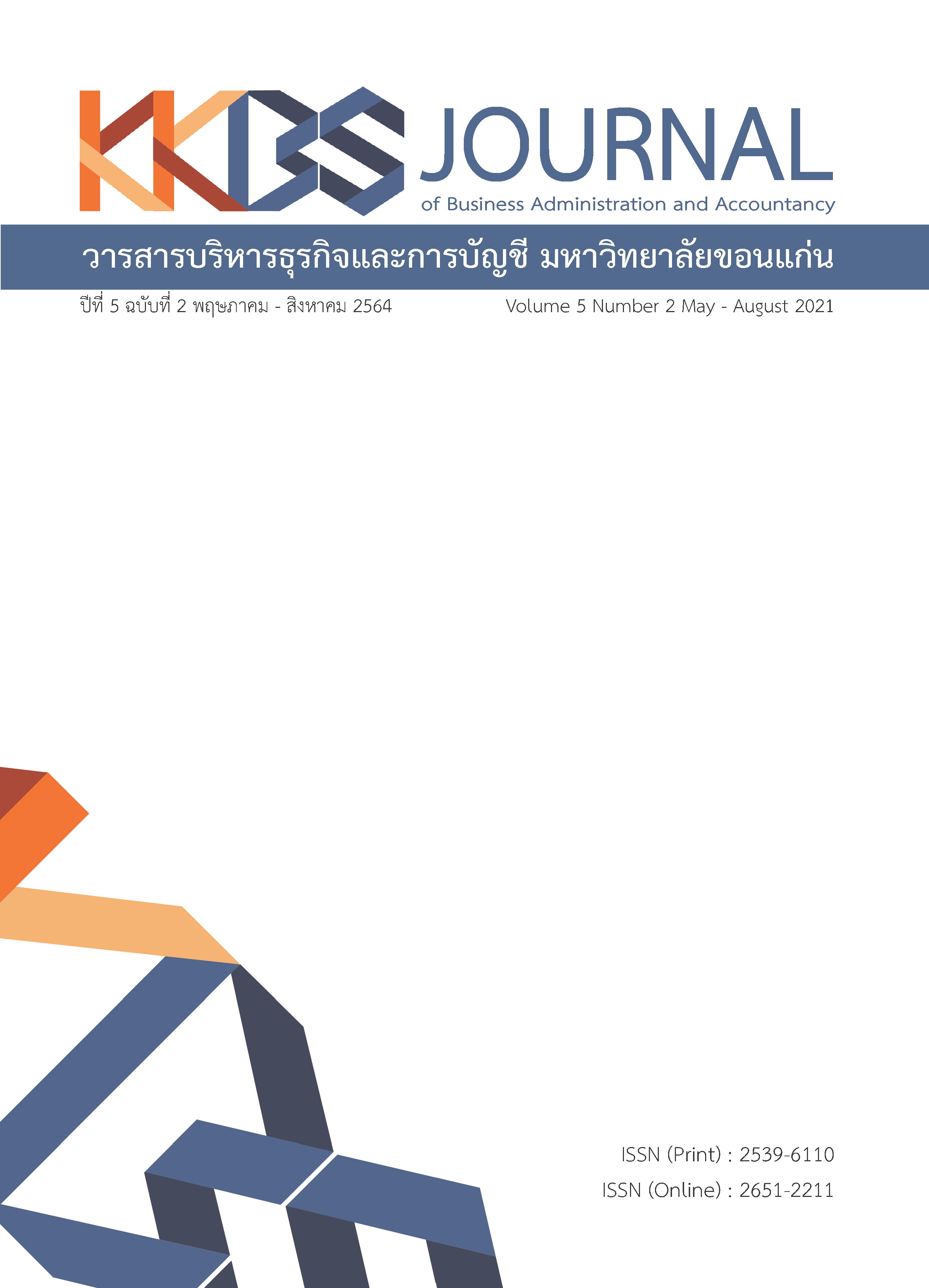Problems in Requesting Return of the Letter of Guarantee for the Preparation of Utilities of the Real Estate Project
Main Article Content
Abstract
Real estate developers often encounter problems of delivering utilities and requesting the return of the utility guarantee contract. As a result, the company is unable to return the letter of guarantee for the preparation of utilities as scheduled. The objectives of this research are as follows: 1) To study the problem of the return of the utility contract of the real estate development company doing the land allocation project in Bangkok and Nonthaburi Province; 2) To analyze the opinions of the respondents on the request Return the letter of guarantee for the preparation of utilities; 3) To develop guidelines for improving procedures for the return of the utility contract of the real estate development company. Research is both a quantitative and qualitative study. Data were collected from a sample group of 126 people who applied for land development permission and the utility redemption committee with a questionnaire tool. In addition, the data was collected by interviewing six experts who have at least five years of working experience in land allocation permission. The results of the study showed that the problem of requesting the return of the contract of guarantee for the preparation of the utility was in the medium to the high level and that the respondents' job position had more different opinions than work experience issues. Finally, this research proposes solutions to reduce the cost and time of the project.
Article Details
The articles published in the journals are the authors' opinions, not the opinion of the editorial team or administrative staff. The articles published is copyright of the Journal of Business Administration and Accounting, Khon Kaen University.
References
Brand, C.E., Jager, L.D.E. & Lategan, L.O.K. (2014). The Delphi technique as A tool to evaluate a concept CPD: Framework to be implemented by medical technologists in South Africa. Interdisciplinary Journal, 6(2), 1-11.
Chaisri, P. (2014). The study of problems collecting of the common area expense and the management patterns in intermediate price housing estate in Bangkok and Vinicity provinces. Bangkok: Thammasat University.
Chulasai, B., Siri, Y. & Korkongvisarut, V. (2003). Guidelines for the management of allocated villages according to the Land Allocation Act, B.E. 2543. Bangkok: Chulalongkorn University.
Cronbach, L.J. (1990). Essentials of psychological testing. New York: Harper Collins.
Duangkham, S. (2002). Attitude and satisfaction towards common expense collection by the developer, the village committee and the village committee which is co-operated by Tambon administration. Bangkok: Chulalongkorn University.
Jaika, P. (2010). Corporate property management of medium sized villages: A case study of Benyapa Ratchapruek and Greenville Projects Nonthaburi province, Thailand. Bangkok: Chulalongkorn University.
Rovinelli, R.J. & Hambleton, R.K. (1977). On the use of content specialists in the assessment of criterion-referenced test item validity. Dutch Journal of Educational Research, 2(2), 49-60.
Saaty, T.L. (1970). Optimization in integers and related extremal problems. New York: McGraw-Hill.
Siri, Y. (2016). Development of the allocated land - land allocation affecting the formulation of public utilities and utilities of the land allocation project from before 1957 - 1987. Bangkok: Chulalongkorn University.
Vongkasikorn, S. (2015). Measures for the collection of maintenance and management fees for public facilities of housing estate juristic persons. Bangkok: Chulalongkorn University.
Yamane, T. (1973). Statistics: An introductory analysis. New York: Harper & Row Pub.


